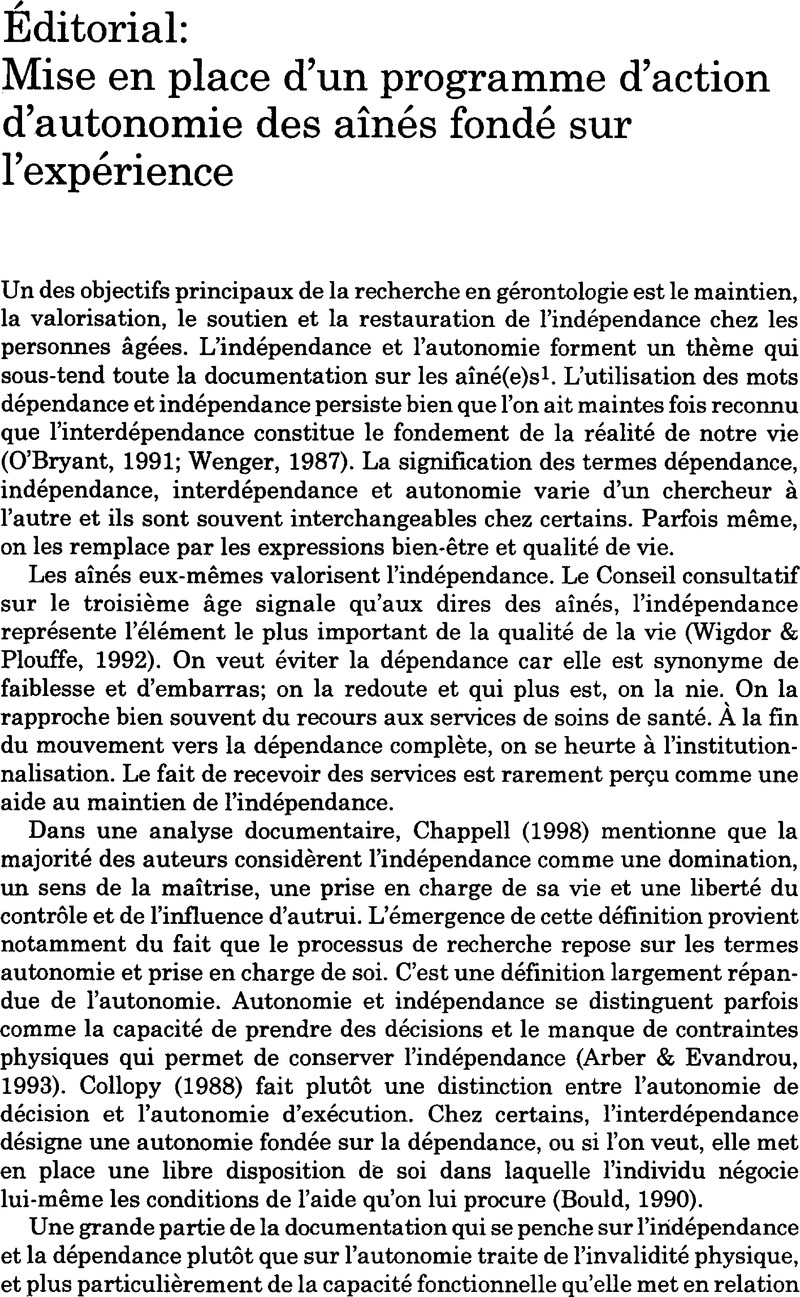No CrossRef data available.
Article contents
Éditorial: Mise en place d'un programme d'action d'autonomie des aînes fondé sur l'expérience
Published online by Cambridge University Press: 29 November 2010
Abstract

- Type
- Editorial/Éditorial
- Information
- Canadian Journal on Aging / La Revue canadienne du vieillissement , Volume 19 , Issue S1 , Summer/Été 2000 , pp. vi - x
- Copyright
- Copyright © Canadian Association on Gerontology 2000


